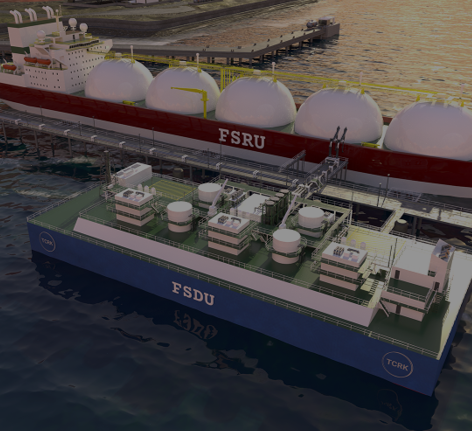
Mozambique state-owned Empresa Nacional de Hidrocarbonetos (ENH) has formed a joint task force with TCRK Energy, backed by serial Mozambique entrepreneur Tom Bruton, to investigate blue hydrogen opportunities.
ENH and TCRK Energy formed the task force this week. It aims to look at long-term plans to reduce carbon in the production of blue hydrogen. Carbon capture and sequestration (CCS) are at the heart of these plans in Cabo Delgado, Bruton told Energy Voice. and pilot projects will be
Long-term
Bruton has previously launched TCRK Marine and TCRK LNG, to pursue opportunities in the energy sector with ENH. TCRK Energy aims to make the case for hydrogen exports.
“How does Mozambique position for a future reduction in carbon, when its resource base is gas? Customers are changing the energy matrix and the country needs to have a strategy for that,” Bruton told Energy Voice. “It’s not about abandoning LNG, it’s about a longer-term strategy.”
LNG contracts for the Mozambique LNG project run for 13-15 years. When ENH returns to the market, demand will have changed, he said.
This is true for Mozambique but also other resource-rich countries. TCRK Energy is also in talks with “one or two” other countries in the Middle East on potential blue hydrogen exports.
The major part of TCRK Energy’s work on hydrogen is capturing the carbon that is processed in the steam-methane reforming (SMR) process. Capturing the CO2 marks the product as blue hydrogen. Without sequestration of some kind, the hydrogen produced is known as grey.
Regulators in import markets are keen that fuel producers capture carbon at source, Bruton said. Around 75% of the company’s work focuses on the problem of carbon sequestration.
Carbon communities
There is a variety of ways to capture this carbon. “There are options for geological sequestration. One of the areas our relationship has progressed with ENH and Mozambique is through a focus on local content.”
Linking carbon capture with local content has led TCRK Energy to consider options such as microalgae. This could feed into the production of biofuels of various kinds, helping cut Mozambique’s import needs.
“We have a pilot community project starting on that at the end of this year. First gas is still five years away but carbon sequestration is such a gating factor that we need real world examples,” he said. Producing fuel in the communities, creating jobs and tackling energy access issues is a “win-win”.
Beyond microalgae, the executive also raised the possibility of graphite or graphene manufacturing.
The megaprojects in the area have “bypassed communities. We can engage with communities, providing training and employment. We aim at that as an outcome.”
Cabo Delgado has witnessed security problems over the last few years, causing difficulties for Mozambique LNG operator Total.
“There is a challenging security situation. The government needs to get on top and they will get on top of it. We’re focused on the local community and if they feel alienated or bypassed by benefits that can lead to an element of disillusionment. We’re very conscious of engaging with the local people.”
Export challenges
TCRK Energy does not have a specific field that it would rely on for gas as yet, although Bruton said the project would begin in the Rovuma Basin. The company is focusing on “derisking technology to produce hydrogen in the quantity we need and developing strategies that we believe will drive local capacity”.
Other factors TCRK Energy is considering are enhanced SMR, to improve the efficiency of the hydrogen production process, and shipping.
“We’re looking at liquid organic hydrogen carriers (LOHCs), as the ability to ship hydrogen on a large scale does not exist,” Bruton said.
The company is also working on a design to allow easier imports, via a floating storage and dehydration unit (FSDU).
In terms of export markets, the company has looked at the UK and South Korea. The latter, for instance, is making much of plans for fuel cell vehicles. “Korea is going to need 3 million tonnes per year of blue hydrogen, with about half of that imported,” Bruton said. Mozambique could help meet that need, he continued.
Bruton’s TCRK Marine works in a joint venture with ENH and Stena Bulk. This aims to “ensure Mozambican participation across the gas value chain”. TCRK LNG, meanwhile, works on small-scale LNG plans with ENH, mostly focused on local consumption.
The executive started working in Mozambique around eight years ago, when he began working on the fuel infrastructure master plan. “We were originally consultants and became principals. We loved working in Mozambique and we saw it had a great future.”
Recommended for you

